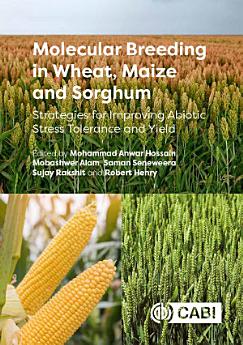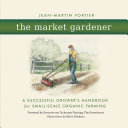Molecular Breeding in Wheat, Maize and Sorghum: Strategies for Improving Abiotic Stress Tolerance and Yield
Mohammad Anwar Hossain · Mobashwer Alam · Saman Seneweera · Sujay Rakshit · Robert J. Henry
Jun 2021 · CABI
Ebook
550
Pages
family_home
Eligible
info
reportRatings and reviews aren’t verified Learn More
About this ebook
The global population is projected to reach almost 10 billion by 2050, and food and feed production will need to increase by 70%. Wheat, maize and sorghum are three key cereals which provide nutrition for the majority of the world's population. Their production is affected by various abiotic stresses which cause significant yield losses. The effects of climate change also increase the frequency and severity of such abiotic stresses. Molecular breeding technologies offer real hope for improving crop yields. Although significant progress has been made over the last few years, there is still a need to bridge the large gap between yields in the most favorable and most stressful conditions.
About the author
Mohammad Anwar Hossain is at Bangladesh Agricultural University, Bangladesh.
Mobashwer Alam is a Senior Research Fellow and a theme leader of Predictive Agriculture for Improved Productivity and Value at the Queensland Alliance for Agriculture and Food Innovation, UQ. He is the team leader of the QAAFI's National Passionfruit Breeding and Evaluation Program (PF22000). He has more than twenty-two years of experience in multi-disciplinary research, including plant breeding, quantitative genetics, genomics, plant physiology, and crop modelling. He is interested in developing rapid breeding tools and utilizing plant genomics in horticultural crop improvement.
Saman Seneweera is with National Institute of Fundamental Studies, Sri Lanka.
Sujay Rakshit is with ICAR-Indian Institute of Maize Research, India.
Robert Henry is with Queensland Alliance for Agriculture and Food Innovation, Australia. He is the author or editor of several books on plant molecular biology, genetics, evolution and biodiversity.
Rate this ebook
Tell us what you think.
Reading information
Smartphones and tablets
Install the Google Play Books app for Android and iPad/iPhone. It syncs automatically with your account and allows you to read online or offline wherever you are.
Laptops and computers
You can listen to audiobooks purchased on Google Play using your computer's web browser.
eReaders and other devices
To read on e-ink devices like Kobo eReaders, you'll need to download a file and transfer it to your device. Follow the detailed Help Center instructions to transfer the files to supported eReaders.





